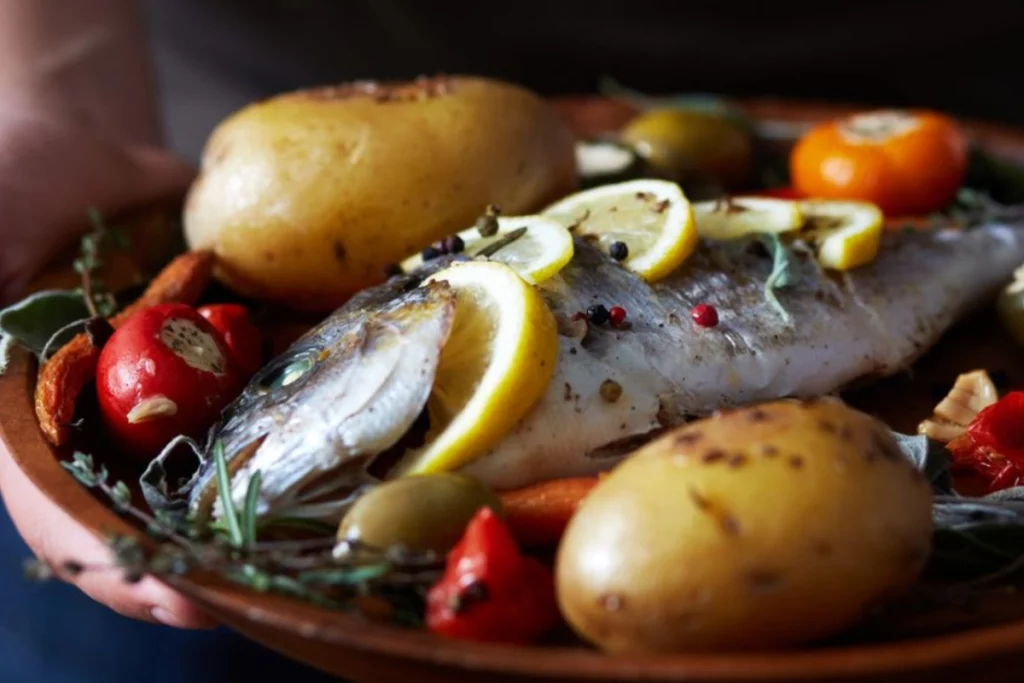Mediterranean Diet: We all know that the Mediterranean diet is a healthy diet. It has been around for ages and comes from regions around the Mediterranean, namely southern Italy and Greece. It is known to protect against heart disease.
Over time, the diet has become quite popular. The American Heart Association endorses the Mediterranean diet as a way of eating that can help reduce risk of heart disease and stroke, as well as a slew of other health ailments.
Eat fresh, stay healthy

Mediterranean diet has no one strict version and you don’t need to count calorie. Instead, it is more about eating fresh vegetables, fruits, nuts, legumes and whole grains, as well as extra-virgin olive oil, lean meats, fish and red wine in moderation. It limits red meat, processed foods, dairy and sweets.
Experts believe that the Mediterranean diet may help prevent weight gain, type 2 diabetes, heart disease, and certain cancers.
As it’s based mostly on fresh food, the diet is not very difficult to find. Also, it is rich in fiber, vitamins, minerals and phytonutrients, which are protective plant compounds.
Vegetables and fruits

Mediterranean diet-approved foods include fresh vegetables and fruits. Eating plenty of vegetables and fruits can help prevent cardiovascular disease and prevent some cancers.
Legumes and whole grains
Legumes (beans and lentils) will regulate blood sugar and may have anti-cancer effects. They are rich protein, fiber, B vitamins, iron and other nutrients. They contain fiber minerals and phytochemicals, and lower the risk of heart disease, diabetes and cancer.
Olive oil and nuts
Extra-virgin olive oil is an essential part of the Mediterranean diet. Its unsaturated fat helps lower the chance of stroke and heart attack and reduce blood pressure.
Nuts are packed with unsaturated fat, protein, fiber and B vitamins. Most nuts contain magnesium, which helps support healthy blood pressure and blood sugar and keeps bones strong, among other benefits. Walnuts specifically contain alpha-linoleic acid, an important omega-3 fatty acid that might reduce risk of coronary heart disease.
Fish promotes heart and brain health

Fish is priority food in the Mediterranean diet. Fish and shellfish provide high-quality protein, omega-3 fatty acids that promote heart and brain health and help fight chronic inflammation, and several vitamins and minerals, including vitamin D and selenium.
Red wine and dairy in moderation
People love this diet as it allows wine with meals, but in moderation. According to the American Heart Association, one 5-ounce glass a day for women, and two for men are good enough. Especially red wine is rich in phytonutrients amd is hood for the heart.
This diet also includes dairy products such as eggs, cheese and yogurt. If taken in moderation, they provide calcium, phosphorus, vitamins A and D, protein and saturated fat.
While studies do not associate any risks with the Mediterranean diet, you must consult your physician before starting it. And especially in case of wine, dairy and red meat, have them in moderation. Moderation is the key word here.
Senior women must include some protein (like eggs, yogurt, chicken, legume, nuts or fish) with every meal.
Keep watching our YouTube Channel ‘DNP INDIA’. Also, please subscribe and follow us on FACEBOOK, INSTAGRAM, and TWITTER.


